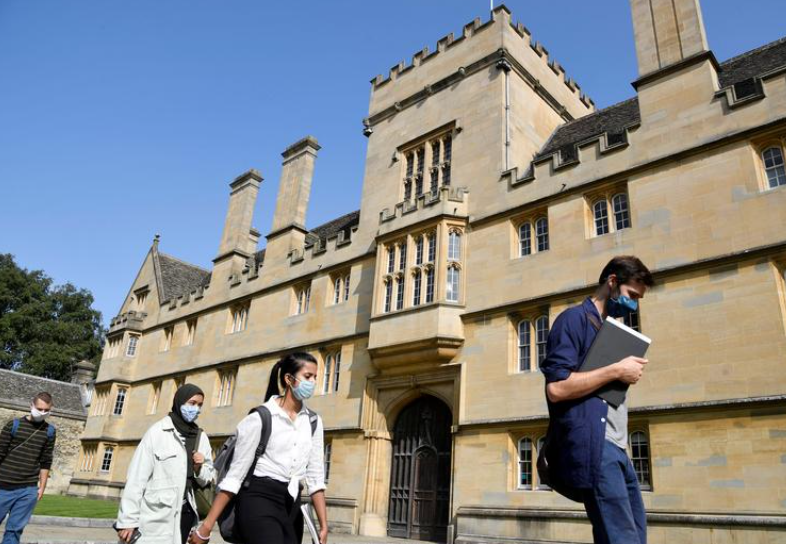UK students to get COVID tests before Christmas homecoming


Students in England have been told they will be allowed to travel home for the Christmas festive period within a six-day window between Dec 3 and 9 if their universities deploy rapid result testing for the novel coronavirus and switch to online teaching when the nation's lockdown ends early next month.
The government has told universities to allocate staggered departure dates within the set travel window in an effort to limit the spread of COVID-19.
The plans announced on Wednesday by the Department for Education have been criticized as the tight timescale means an estimated one million students will travel across the country in the space of less than one week.
The proposed mass swab testing in advance of their journeys will be a "massive undertaking", the government has been told.
Any students testing positive would need to remain in self-isolation at their university accommodation for 10 days.
Minister of State for Universities Michelle Donelan told BBC Breakfast that the week after the four-week national lockdown in England ends on Dec 2 was chosen because "students will pose a much-reduced risk to their loved ones and their community".
She said the timing means anyone who develops symptoms on Dec 9 will still "have enough time to isolate and then return home for Christmas".
Jo Grady, general secretary of the University and College Union, told the BBC that allowing just one week "leaves little room for error".
"If the government instead told universities to move online now, it would provide much more time to stagger the movement of students and better protect the health of staff, students and their wider communities," she said.
The mass testing will be a giant task for universities, Jacqui Ramagge, executive dean for science at Durham University, told the Press Association. She said: "I don't think very many (universities) will be prepared for this because I think it's a massive undertaking."
The Daily Telegraph reported that the "pre-end-of-term testing" will be offered to universities by local teams from National Health Service Test and Trace.
The paper added that university leaders were told the key objective was to test students so they could make "informed decisions regarding their return home for Christmas".
It said this would minimize the risk of "spreading the virus to vulnerable people at their destination".
Donelan said she expected that Scotland, Wales and Northern Ireland will also soon announce their plans for how university students should be able to return home for Christmas.
On Tuesday, Britain reported 532 new deaths of people within 28 days of a positive COVID-19 test, the highest daily figure since May, government figures showed.
Meanwhile, the health director of France, Jerome Salomon, has stressed that, despite some encouraging signs, the peak of the pandemic in the country lies ahead.
France began a second national lockdown on Oct 30. "We are at a crucial moment," Salomon told a news conference on Monday. "The peak of the epidemic is coming. The second wave is still progressing."
With 1,807,479 confirmed cases since the outbreak of the disease, France now has the fourth-highest tally in the world, after it moved ahead of Russia over the weekend. Only the United States, India and Brazil have had more infections.
Salomon said there had been a reduction in the spread of the virus in some areas that had been subject to a curfew before the lockdown, such as Paris.
"(In these regions) the virus is progressing more slowly. That's encouraging, and it motivates us to collectively continue our efforts to accentuate that movement," he said.
It comes as Denmark's government put forward emergency legislation to continue the cull of all 17 million mink in the country, based on fears that a COVID-19 mutation moving from mink to humans could jeopardize future vaccines.
The government had earlier admitted it lacked the legal basis for the measure it had ordered last week after a mutated version of the novel coronavirus was found in the animals.
"Even if we were in a rush, it should have been completely clear to us that new legislation was required, and it was not. I apologize for that," Denmark's prime minister, Mette Frederiksen, told Parliament.
Reuters reported that the order had drawn strong criticism from the industry and lawmakers who said it was illegal and questioned the science.
Environment and Food Minister Mogens Jensen has urged all mink farmers to go ahead with the cull as a precaution, as did Tage Pedersen, the head of the Danish mink breeders' association. The World Health Organization has said transmission of the virus between mink and humans was "a concern".
































